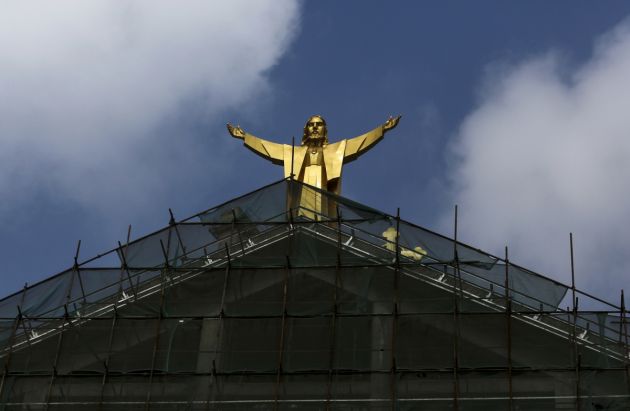China's religious freedom worsened since Xi took power, says rights group

The state of religious freedom in China has worsened since Xi Jinping became president, alongside a rising wave of repression in the country, a report by the U.S.-based watchdog Freedom House says.
"Xi has combined populist and coercive policies in an attempt to strengthen the party's hold on power.
"These efforts have proven somewhat effective, but they have also fueled resentment and recruitment to the cause of rights defense, both within society and among some party members, security personnel and censors, author Sarah Cook concludes," Freedom House says.
The Freedom House study monitors assessed internal records and gathered testimonies from observers.
In it the advocacy group notes that religious groups were among those who suffered the worst at the hands of the Chinese government when Xi came to power in 2013.
Aside from religious groups, the government has targeted communist party officials said to be involved in corruption, the study said.
Censors have strictly regulated the Internet, nipping online dissent in the bud.
"There is a clear change in how Xi Jinping is managing the censorship and security apparatus compared with his predecessor, and overall this has meant more restrictions, not more freedom," said Cook in the study.
"As the systems of coercion touch the lives of more Chinese people, Xi and his colleagues risk exacerbating the party's legitimacy problems."
When Xi took power in March 2013, he embarked on the slogan "the Chinese Dream," which sought to stoke nationalism again with the "rule of law" as China continued to reassert its dominance as a global player.
Among the targets of the campaign is weeding out members of the Communist Party who contribute to its corrupt image.
But the campaign included wider online restrictions, and a tougher stance against minorities in the country such as Tibetans, Christians and Uyghurs.
While the party purged its ranks of corrupt members, minority groups have also borne the brunt of what appears to be a persecution against them.
"By broadening the targets of repression and censorship while concentrating authority over the coercive apparatus in the hands of Xi himself, the Communist Party has moved away from long-standing strategies designed to balance the need to use coercion against the damage it can cause to regime legitimacy," the report said.
In the past months, the plight of both Christians and Uyghurs have worsened, with government officials sometimes shuttering places of worship and arresting community leader for unspecified charges.
Tibetans, on the other hand, continued to face repression when they maintain their calls for independence from Chinese occupation.